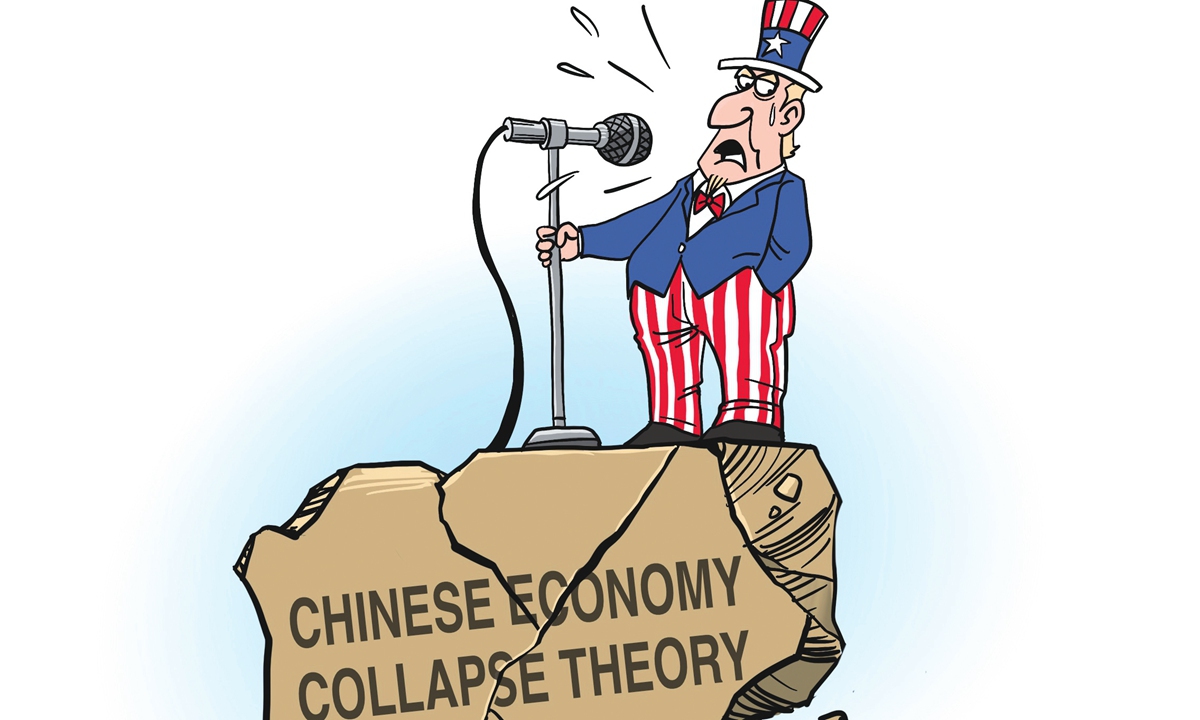Photo: screenshot from the Lowy Institute Poll
A new Australian poll has found that more than half of Australians (56%) believe China will be the most powerful country in ten years, while only about a quarter (27%) say the same of the US, noting "attitudes toward China improved incrementally, but caution remains."
Similarly, more believe China (58%) will lead technologically in ten years compared to the US (12%), according to Lowy Institute Poll 2025 Report published on Monday
This reflected a positive shift on Australian perceptions of China with growing number of Australians gaining firsthand exposure to China's realities, a Chinese expert commented on Monday. The expert hopes in developing bilateral ties, Canberra would not be hijacked by external forces, stressing "the common ground far outweighs differences, and bilateral relations must be defined by cooperation, not divisions."
Attitudes towards China improved incrementally, but caution remains, the Australian institute said in the summary of the poll. The poll reports the results of a nationally representative survey of 2117 adult Australian residents, conducted between 3 and 16 March.
For the first time since 2020, Australians were just as likely to see China as an economic partner than as a security threat - though a clear majority (69%) continue to think it likely China will become a "military threat" to Australia in the next 20 years, according to the poll.
About half think Australia should cooperate more with China on climate change (49%). Views on economic engagement are mixed — a plurality (43%) say Australia should be trading at about the same level as now, whereas about half (49%) say Australia should be attracting less investment from China, shows the poll.
Regarding Australia's relationships with the superpowers, a bare majority continue to say the US is more important to Australia (52%), while a lower proportion prioritize China (43%), the poll shows.
Australian Prime Minister Anthony Albanese (45%) enjoyed a 20-point lead over Peter Dutton (25%) in Australians' confidence in him to manage the relationship with China, according to the poll.
"There's slightly more trust, slightly less threat perceptions, [but] it's still a pretty bleak picture for how Australians look at China," The Guardian quoted Ryan Neelam, the poll author and a director at the Lowy Institute, as saying.
Since the 2024 survey, the gap between Australians' trust in the US compared with China has more than halved, as perceptions of China continued to improve from their nadir in 2022, The Guardian reported, quoting Neelam.
Commenting over the poll results, Chen Hong, director of the Australian Studies Center at East China Normal University, told the Global Times on Monday that in previous years, under the influence of the then-ruling party's political maneuvers and the deliberate smear campaigns by certain anti-China forces in Australia's media landscape, public perceptions of China had been distorted and mired in so-called "China threat" narratives. This led to notably negative attitudes in polls, such as the Lowy Institute Poll 2022 Report.
However, facts speak louder than rhetoric, Chen continued. Recent years have seen growing number of Australians gaining firsthand exposure to China's realities, particularly after China's visa-waiver policy for Australians, Chen said.
"For instance, we've recently hosted multiple delegations from Australia and New Zealand, with more set to visit," Chen said, sharing his experience. "The latest poll reflects a more objective shift in public sentiment," Chen noted.
Yet while Australians increasingly recognize these truths, the persistence of a majority (69%) viewing China as a future "military threat" reveals the lingering impact of fabricated "China threat" narratives, Chen remarked.
In addition, according the Australian poll, just over one in three Australians (36%) trusted the US to act responsibly in the world, a 20-point drop since last year and the lowest level on record since the Lowy Institute began polling in 2005.
Despite the sharp drop in trust towards the US, more than six in ten (63%) continue to think that the US would come to Australia's defense if it were attacked, and more Australians say the country should remain close to the US (57%) than those who think Australia should distance itself from its major ally (40%), said the poll.
Nevertheless, most Australians (68%) are pessimistic about the current US administration. Australians are evenly split on Washington's demand for US allies to spend more on defense, according to the poll.
Since the 2024 survey, the gap between Australians' trust in the US compared with China has more than halved, as perceptions of China continued to improve from their nadir in 2022, The Guardian reported, quoting Neelam.
According to The Guardian, Neelam said "That's quite remarkable for Australia's key security ally to have such a low level of trust." "The weight of expectation is that China will be more powerful and more predominant in the global system," he said.
Support for the AUKUS nuclear-powered submarine deal remained steady, with two-thirds of Australians (67%) in favor—roughly unchanged from 2022 (70%), shortly after AUKUS was announced.
As the US consistently prioritizes its own interests and national security, even at the expense of allies, a stance that has fueled growing public disillusionment in Australia, Chen pointed out.
But the expert, citing the poll showing 63% of Australians still believe the US would defend Australia if attacked, said this exposes a lingering, unrealistic idealization of American commitments.





